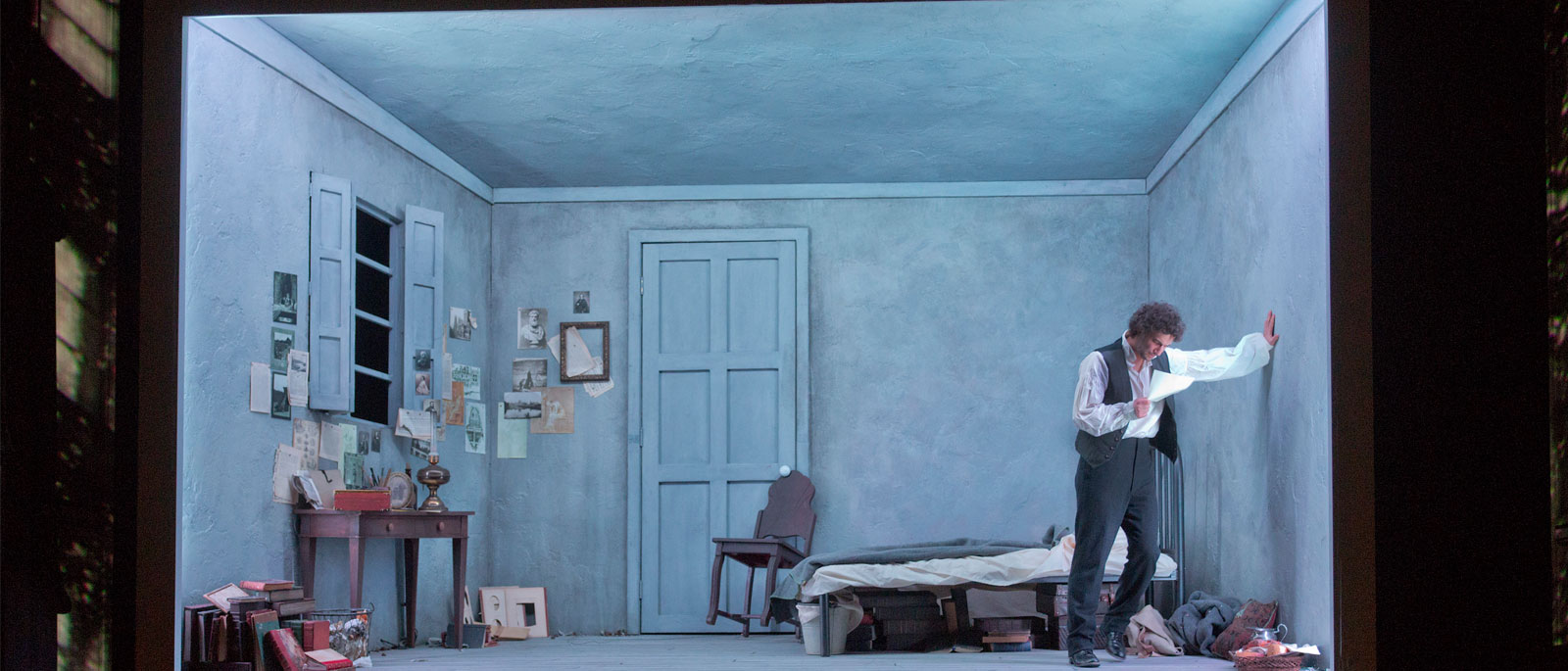
Werther
Many operas focus on women who love too much, love wantonly or foolishly, or love their way straight to a tragic end. Jules Massenet’s Werther is different: It is a study of the seething emotions that can overwhelm a young man. When the poet Werther falls in love with a woman who can never be his, he believes his fate has been sealed. But what ultimately drives the story of this opera is not fate but a decision—the shocking decision of a romantic youth facing the strongest feelings he has ever known.
Massenet based his opera on a best-selling book from a century earlier, Johann Wolfgang von Goethe’s The Sorrows of Young Werther, first published in 1774. The 24-year-old Goethe wrote this semi-autobiographical novel as a series of letters in which his protagonist recounts his love for Charlotte, a young woman who is betrothed to another man. This impossible, ever-intensifying love leads the self-absorbed Werther to suicide. But where Goethe brought his readers into Werther’s feverish mind, Massenet and his librettists open out into the community, offering rich, full characterizations of Charlotte, her husband, and a society in which the protagonists’ passions collide with convention and honor.
This guide delves into Werther as both a late 18th-century literary phenomenon and a finely crafted work for the 19th-century operatic stage. By tracing the creation and reception of both the novel and the opera, students will be able to consider how a given story can be created, developed, and reimagined across a variety of media. In addition, this guide offers tips for discussing some of the more difficult aspects of Werther, particularly the title character’s death by suicide. By inspiring intellectual exploration, creative expression, and open discussion, this guide will empower students to engage with Werther’s story, music, and design while also creating a safe space for personal insight and growth.
Included in the 2013-14 and 2020-21 seasons of HD Live in Schools.


